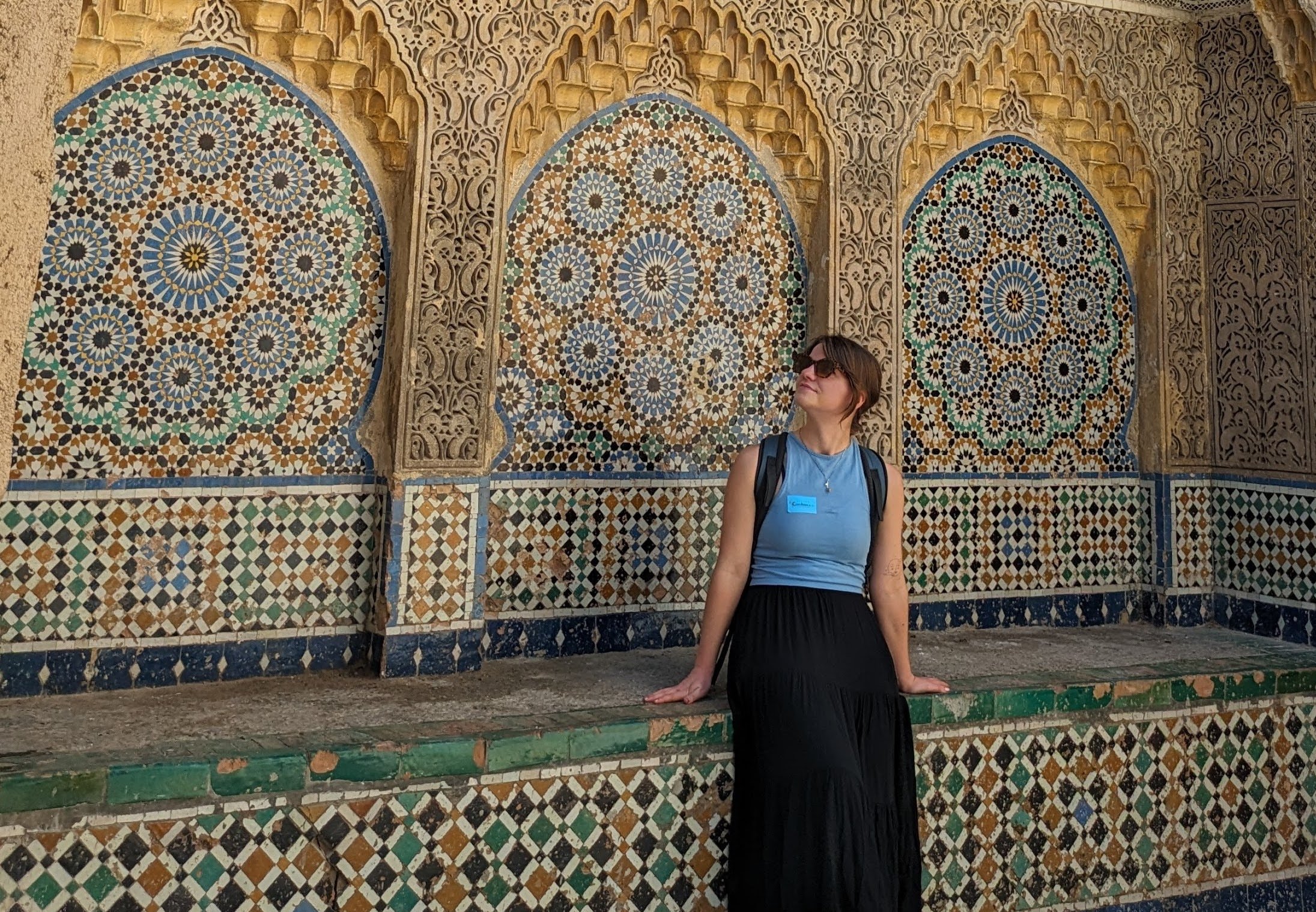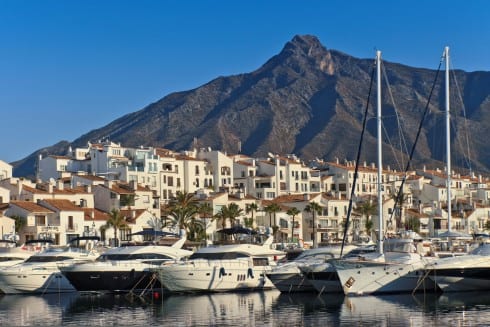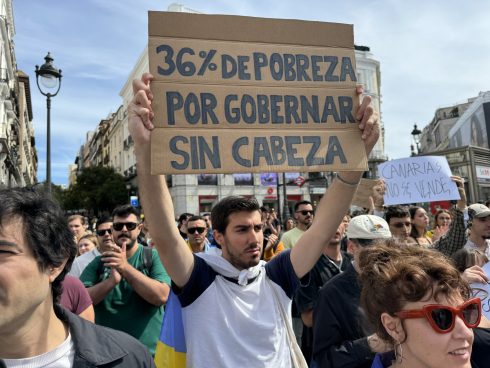Hopping on the ferry to Morocco? These are my top tips for visiting the North African country.
Getting there
From the Costa del Sol, Morocco is just a quick ferry ride away with ports in Algeciras, Tarifa, Motril, Almeria, Malaga and Gibraltar.
Ferries go to a variety of locations including Tangier, Nador, Al Hoceima, Ceuta and Melilla.

Though visas are not required, you will have to pass through passport control to enter the country.
You can bring cars on ferries but some only allow foot passengers in the busy summer months.
Prices range from a purse friendly €17 to €70.
I decided to take the ferry to Tangiers from Tarifa and it couldn’t have been an easier process.
It took just over an hour and was sped up by the fact passport control was conducted on board the ship.
If you’re further north, you can also take a boat from Barcelona, but it’s probably easier to fly.
Budget airlines such as Ryanair and Vueling often frequent flights to Morocco’s major cities.
Where to visit
For day trips, look for destinations along the southern coast of Morocco, including Tangiers and Tetouan.
Though not as popular as Marrakech or Chefchaouen, these small cities give a great introduction to Morocco and are full of history and culture.
Also along this coast are the Spanish territories of Ceuta and Melilla.
Inland from Tangier you will find Fes, the cultural capital of Morocco.
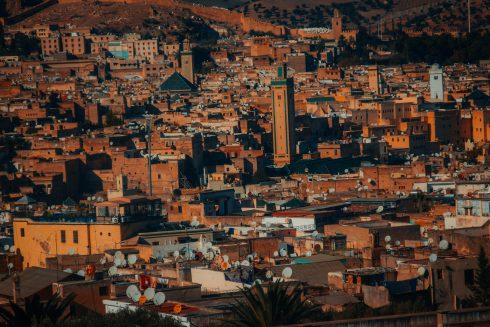
Home to the largest medina (old town) in the country, there is much to explore from handicraft markets, religious buildings and gardens.
On the west coast is the famous Casablanca, known for its French colonial legacy mixed with Moorish architecture.
Many tourists visit Marrakech, whose sprawling medina is a UNESCO World Heritage Site.
Famously known as the ‘blue city’, Chefchaouen is a unique city praised for its wealth of museums and cultural spaces.

It is also surrounded by mountains, making it a great destination for hikers.
If you’re short on time or don’t want hassle- book an organised tour.
Morocco is relatively easy to visit on your own but if you want a stress free trip, we recommend going with an organised tour.
I have taken organised tours to Morocco twice, both day trips, one was from Algeciras to Tétouan and another from Tarifa to Tangiers.

Most tours will pick you up from your accommodation on the Costa del Sol and take you to the port.
Once arrived in Morocco, a local guide will take over, giving you an expansive tour of the city.
Although a day may seem like not enough time to explore this fascinating country, I loved getting a whistle stop tour of a completely different culture and environment.
Having a guide also means you get to ask questions and learn a lot about the history and culture from someone who grew up in it.
Both trips were very tiring and long days, but it was 100% worth it.
Safety tips
Although Morocco is generally considered safe, there are still some precautions you should consider as with any major tourist destination.
Firstly, it is not recommended to walk alone at night, especially as a woman.
You should also refrain from carrying large sums of cash with you.
Keep your valuables safe by wearing a cross body bag with various pockets.
Don’t forget to spread out your valuables to minimise the chance of all your important things being stolen.
A lot of times, locals will try to ‘help’ guide you to your hotel, a landmark or to show you the best spots to eat.
While sometimes well intentioned, they will often ask you for money once you reach your destination, so keep this in mind if someone tries to befriend you.
Similarly, a common and almost constant experience of my trips to Morocco has been incessant badgering by people trying to sell you things.
Often, a firm no and avoiding even looking at the seller’s wares is a good way to avoid this.
It’s important to remember that people are just trying to make money in a hard situation, so don’t let it affect your day.
This isn’t something I experienced myself, but according to Morocco based blogger, Marocmama, catcalling is common in the country.
If you experience this, she recommends ignoring it, but if that’s not your style, informing the perpetrator that you will call the police is a great deterrent as Moroccan forces ‘do not take kindly’ to tourist harassment.
Oh and finally, beware that at some point someone will probably try to corral you into riding or taking a picture on a camel.
READ MORE: This resort in northern Spain is the perfect alternative to overcrowded Ibiza – according to the Sun
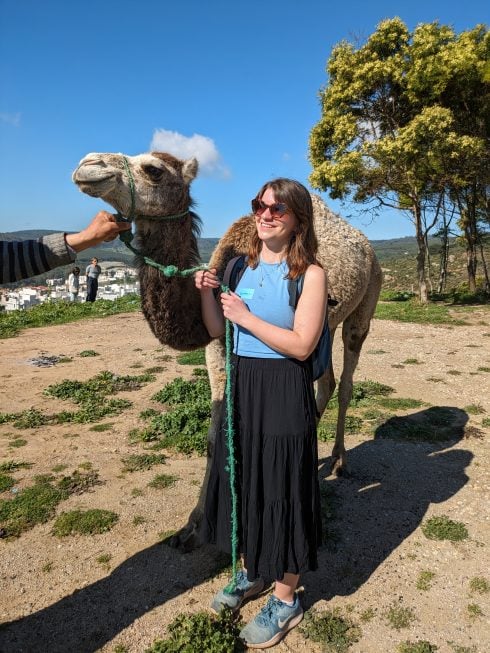
Cultural differences
Local Moroccans are very used to tourists visiting and won’t bat an eye at visitors dressing or acting differently.
However, it’s still important to be aware that you are a visitor and should respect local customs and traditions.
It’s also important to be aware of cultural differences that particularly affect women.
For instance, it is not common for women to sit in cafes alone.
Many are ‘male only’ and if you sit there alone as a woman, people may assume you are trying to pick up men.
To avoid this, ask your accommodation for cafe recommendations where you can enjoy Morocco’s famous mint tea.

Women should also be aware of what they wear, says Marocmama: “Morocco is a muslim country. Though you CAN wear whatever you want, be aware that the less you wear, the more attention you’ll draw.”
Especially in big cities like Marrakech, videos of tourists receiving multiple marriage proposals have gone viral.
To quickly diffuse this awkward situation, flash a ring, even if you’re not married, to show you’re not interested.

